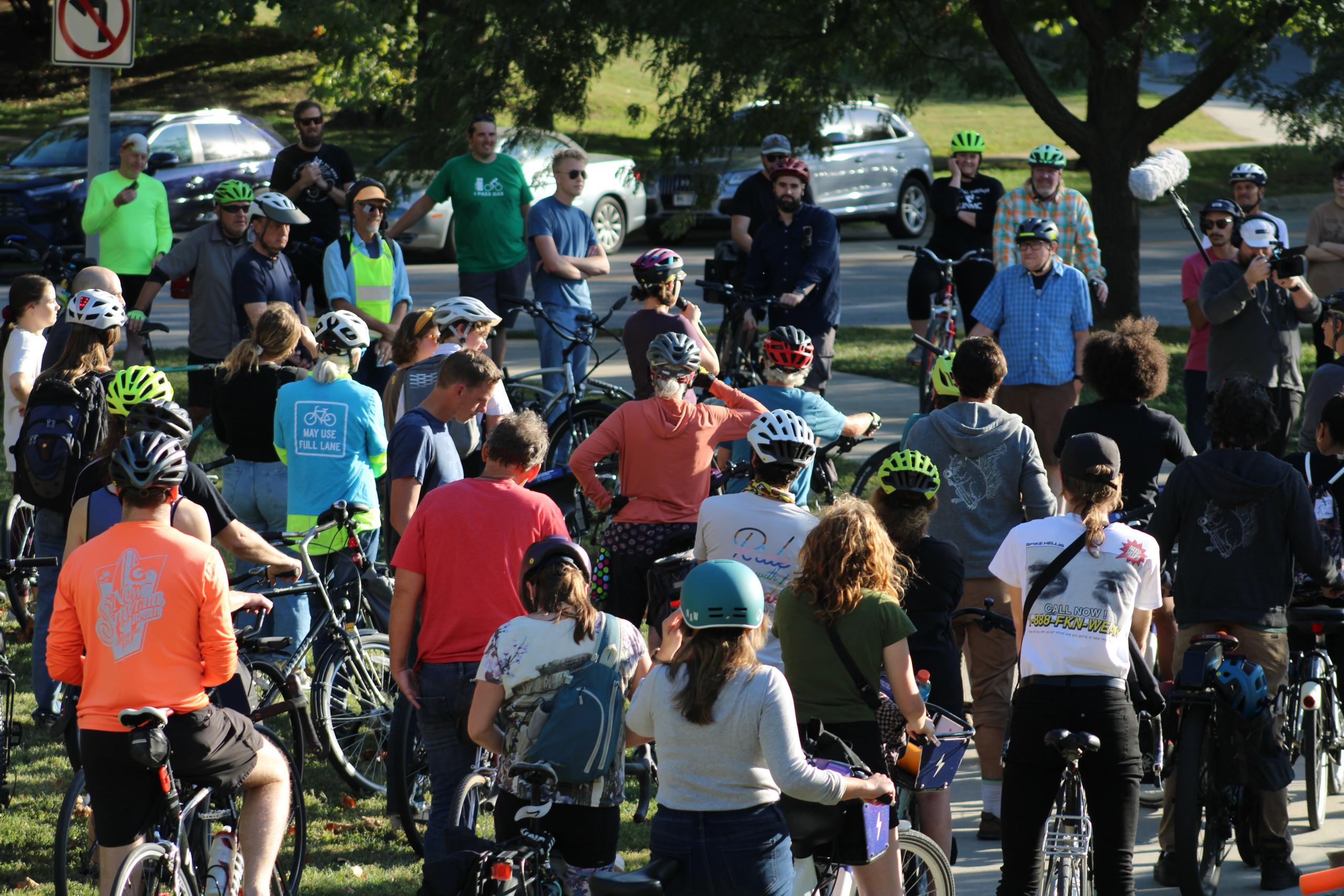
Pedestrian and biking advocates often feel alone when they watch city street improvements go every which way except their way. Those advocates often feel like the real estate developers sit at the inside table from which the public is excluded.
Well, at the Omaha City Council meeting of August 18 it unfolded that even a developer as prominent and active as Paul Smith often feels the same way – outside the Omaha Public Works room looking in.
Paul Smith is the driving force behind the Millworks Common, a $60 million project including the MasterCraft building and the newly gutted Ashton building now refurbished to house Omaha’s fastest growing tech company, Flywheel. Also in the permitting process for the Millwork Commons area are two apartment buildings for another $75 million of investment – plus other buildings to come.
In Omaha’s Capital Improvement Plan (CIP) in 2018 was $3.5 million of city bond money to build an extension of Seward Street westward and 14th Street northward to make an outside boundary to the north and west for Millwork Commons and to allow trucks a way to bypass driving through the middle of the Commons. The $3.5 million was in the 2018 CIP for construction in 2019.
Well, nothing was built in 2019 and now nothing has been started in 2020 and this current CIP pushes the project into 2021, if it gets built at all. At the Council meeting Paul Smith sounded like Charlie Brown when Lucy has just pulled the football away . . . again.
From the discussion at the City Council meeting, it appeared that there’s a lobby that makes pedestrian, bike and real estate developers get pushed out of the deciding room – the truckers.

The trucking lobby may have another way that best suits them and they stopped the Millwork Commons streets. “Sorry about that but we pay lots of gasoline taxes.”
As the City Attorney explained to the powerless City Council, “the CIP is just a plan, not a contract.” Public Works can go into the room and do whatever they want. The CIP isn’t worth the paper it’s printed on.
So, why does the City go to such expense, trouble and printing for the annual CIP plan? It’s a bone to throw to the public (and to the Council) to distract the public while the real decisions are made elsewhere.
ModeShift has been advocating for years to improve the transparency of the CIP. But why? “It’s just a plan not a contract.” Welcome to the outside, Paul. We wish we had an answer.
- Lee Myers, Mode Shift Board Member


Well stated, Lee. Thanks for all your work on making the CIP more transparent….even if it isn’t worth the paper it is written on.
Lee, thanks so much for your sustained deep dives into the CIP and your laying out its shortcomings so clearly. This mayor lies when she says public safety is her top priority. Having trucks barreling through an area where people will want to walk and ride bikes is dangerous. This area could become an attractive gem but not without redirecting trucks. And I don’t understand why trucking companies would consider every mile equal. A shorter distance isn’t always the most efficient.
“Sorry about that but we pay lots of gasoline taxes.” is irrelevant. The City funds the CIP mainly with bonds which are in turn funded by PROPERTY TAXES. Gasoline taxes are used for repairs, which are so far behind that it’s obvious the truckers should pay more and have no say in how property taxes are used.